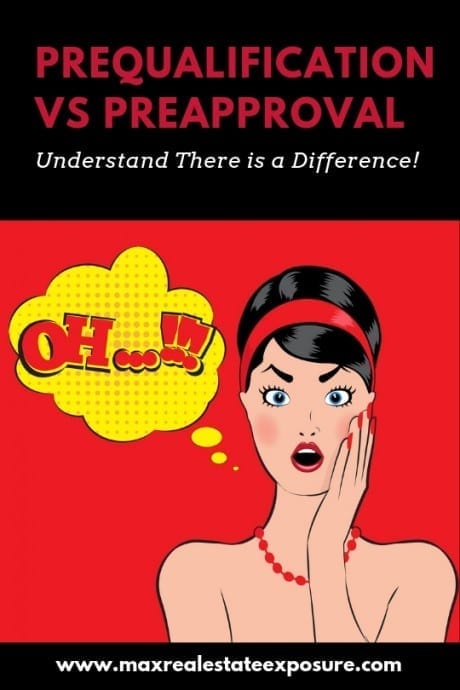How to Choose a Lender or Mortgage Broker
 Are you interested in learning how to choose a mortgage lender?
Are you interested in learning how to choose a mortgage lender?
Would you like to find an exceptional lender nearby?
You’ve come to the right place, as we will cover in-depth what you need to know about making a great choice.
One of the most important things a buyer can do when purchasing a home is to pick the best mortgage lender.
Choosing the best candidate for the loan is something most buyers don’t give a lot of thought to.
Understanding how to pick the best financial institution to get a mortgage from, however, is a critical aspect of buying a home.
For most buyers, understanding how to get a mortgage is crucial.
Homes are expensive, even affordable ones, making buying them with cash impossible.
Mortgage lenders specialize in filling in the gap between how much money you have and how much you need to buy a home.
They are in business to attract home buyers like you, which means you can often find better terms if you shop around.
It is worth your time to carefully consider and compare mortgage lenders before deciding who you want a loan from. The effort you put into the process will most likely save you considerable money and hassle over the life of your mortgage.
One of the things that many naive homebuyers do is go to one of the big national lenders such as Bank of America, Wells Fargo, or others. The problem with doing so is many of these national lenders don’t have the best mortgage programs.
How to choose a lender for a mortgage isn’t something people study. We will take the guesswork out of it for you. Finding a mortgage lender you love will be easier when you’re done reading.
What is a Lender?
A lender is a financial institution, public group, or private individual in the business of lending money. There are many different types of lending companies.
A lender can be local or national. There are many mortgage questions to ask a lender before committing to one.
Finding Mortgage Lenders Near Me
Many people like to find a mortgage lender nearby as it allows them to have more personalized banking. Besides a home purchase, they can bank locally for other needs.
A real estate agent is one of the best resources for finding a local lender. An excellent buyer’s agent can provide the expertise on who has been great for their clients.
It is one of the many things a real estate agent does for their clients.
It is usually based on the experience of providing competitive interest rates and excellent communication skills. You can start researching independently when you don’t have a real estate agent.
Use Google to help. Searching mortgage lenders near me should provide some helpful results. From there, it will be essential to do proper due diligence.
What Are The Types of Mortgage Lenders?
 You will find there are numerous mortgage brokers, banks, and online lenders, who would love to process your mortgage loan application.
You will find there are numerous mortgage brokers, banks, and online lenders, who would love to process your mortgage loan application.
These financial institutions can be local mortgage lenders or national.
They can include the following:
- Mortgage brokers
- Portfolio lenders
- Direct lenders
- Correspondent lenders
- Wholesale lenders
- Hard money lenders
Mortgage Brokers
Mortgage brokers are independent professionals who facilitate connections between lenders and borrowers. As trusted intermediaries, they play an essential role in promoting the mortgage process.
A mortgage broker will charge a percentage of the loan amount to assist in getting a loan. The lender will pay the broker’s fee, which is usually 1-2 percent of the loan amount. The cost of which is passed onto a borrower.
A mortgage broker does not make lending decisions or set interest rates. In my thirty-seven years of selling real estate, I’ve found that mortgage brokers provide the best interest rates and terms.
A mortgage broker will seek the best lender for your specific needs and goals.
For example, do you want the best thirty-year fixed-rate mortgage with no points or closing costs?
A mortgage broker can find the most appropriate lender with the best rate and terms for that specific loan program. Getting the lowest interest rate can often save you tens of thousands in interest over the life of the loan.
By not doing your homework, it is easy to get lousy mortgage terms that you later regret not putting in the time and effort. A broker is usually an excellent choice when finding mortgage lenders near you.
Portfolio Lenders
Portfolio lenders originate and provide funding for loans from their client’s bank deposits so they can retain custody of them after closing.
Typically, these financial institutions consist of community banks, credit unions, and savings institutions. They can often provide mortgage financing for those with unique mortgage needs. When finding lenders nearby, they are usually a suitable option.
Direct Lenders
A direct lender provides financing directly to borrowers. They can be credit unions, banks, or other organizations.
Direct lenders will provide financing and either service the loan in-house or outsource to a third party. A direct lender offers borrowers with rates and terms that they determine.
Mortgage terms with direct lenders can vary from one lending institution to another.
Correspondent Lenders
When the loan closes, a correspondent lender will originate and fund loans but sell them to other larger financial institutions on the secondary mortgage market.
The downside with this type of lender is you don’t know who will be servicing your loan. The benefit is these lenders have access to many mortgage programs.
Wholesale Lenders
A wholesale lender does not interact with borrowers seeking loans. Instead, they typically work with mortgage brokers to offer loans at discounted rates.
They rely on mortgage brokers to assist borrowers in applying for a loan and working through the mortgage approval.
Sometimes wholesale lenders have less stringent loan policies, which could help a marginal borrower get approved.
Hard Money Lenders
A hard money lender is the least desirable mortgage lender for most people. They specialize in providing loans to borrowers who cannot get financing from other lenders.
Hard money lenders are lenders who provide short-term loans. They are less concerned with your ability to pay the mortgage. Instead, they care more about the property’s value to protect their equity.
Hard money lenders typically require repayment much quicker than traditional mortgages, often within five years.
They have much steeper loan origination fees, closing costs, and interest rates than conventional lenders. It would not be unusual to pay 8-10 percent above the current mortgage rates for traditional home loans.
Best Mortgage Lenders For First-Time Home Buyers
As a first-time home buyer, you will notice there are endless possibilities. Many local mortgage lenders will be vying for your business as you start to look at homes.
The journey to owning a home can be filled with challenges for first-time homebuyers. With no equity from previous sales, their down payments are typically smaller than those who have bought and sold a home.
If you qualify, mortgage options by FHA, USDA, and VA loans can be great choices. They have lower credit scores and down payment requirements.
Have a look at the review of mortgage programs for first-time buyers. Get yourself educated on which of these loans could be an excellent option.
Best Cash-Out Refinance Lenders
If you are already a homeowner and want to get some equity out of your property, you may want to choose a mortgage lender with this specialty.
Choosing a mortgage lender who does cash-out refinancing will likely help land you better terms. Nerdwallet reviews some of the best cash-out refinance lenders. Please have a look at their helpful resource.
Best Mortgage Lenders For Bad Credit?
Has something in your financial past prevented you from choosing other conventional lenders? You are not alone. Many borrowers need to get a bad credit home loan.
Unfortunately, there are minimum credit scores to buy a home. If you don’t have the necessary scores, you’ll need to seek out a mortgage lender for bad credit.
Here are some of the best tips on how to pick a mortgage lender:
What to Do Before You Choose a Mortgage Lender
1. Work on Your Credit Score.
The better your credit score, the easier it will be to find an outstanding mortgage. Not that you have to have a perfect score to get a great loan, but the higher your score, the more attractive you will be to most lenders.
They will be willing to give you a better deal. Every little bit helps. Consider that even a single percentage point off your loan rate will save you thousands of dollars.
Everyone’s needs are different, but generally, you should wait a little while and improve your score if it is pretty low. Learn how to improve your score, fix your credit, and reap the rewards.
Credit Karma is an excellent company that can help you raise your scores for free. They give you the information needed to make the best credit decisions.
2. Know The Difference Between a Broker and a Lender.
 Mortgage brokers and mortgage lenders are not the same things. A mortgage broker works to secure mortgages for buyers by finding lenders who will lend to them.
Mortgage brokers and mortgage lenders are not the same things. A mortgage broker works to secure mortgages for buyers by finding lenders who will lend to them.
Ideally, a mortgage broker will be able to get you a better mortgage than you would be able to get on your own—that is why they charge a fee for their services.
But this is not always true, so sift through the details when working with a broker.
A mortgage lender is an institution that will loan you the money to buy your home.
There are a variety of mortgage lenders out there, including credit unions, banks, and other institutions.
Examples of mortgage lenders include:
- Mortgage bankers – These individuals work for a specific bank that offers mortgages.
- Credit unions – Credit unions are owned by the members, so they tend to focus on offering exceptional rates to those members.
- Correspondent lenders – These lenders do not have the finances to loan you the money directly for your mortgage, but they have connections with other lenders they draw on to fulfill your loan.
3. Get a Mortgage Lender Recommendation From Someone You Trust.
If you know anyone who has purchased a home recently, they may be able to give you some perspective on finding a mortgage and the different lenders available.
Your friend, family member, or co-worker may have good or bad things to say about the lender they used. Both of these are valuable because they help you get a better idea of what your options are.
Your Realtor is also an excellent resource for lender recommendations. If you choose an agent you trust, you can rely on their insight into lenders.
Agents help numerous clients purchase homes throughout the year, so they are usually up-to-date on the lenders clients liked and the ones they didn’t like.
A real estate agent can explain the service the lender provides. Sometimes the lender can be great, but the mortgage officer is not. You want cohesion with both the lender and the agent that represents them.
The best mortgage brokers will educate you on the entire mortgage process. They will also help you in avoiding the most common mortgage mistakes.
If you have never bought a home before, it is easy to do things that could cause your loan approval to be canceled by the lender.
4. Check Online Reviews of Mortgage Lenders.
Understanding how to pick a lender involves due diligence. It is best to back up the advice of those you know with your research.
A few days spent checking reviews on different brokers and lenders can give you valuable knowledge about how clients have felt about their experiences.
However, online reviews are easy to post and remember that it is usually the most unhappy clients who are likely to be most motivated to write a review.
Take online reviews with a grain of salt. Instead of focusing on one recommendation, try to get a feel for how borrowers feel overall by reading multiple reports from the same lender.
Sometimes people that write reviews assume things should go a certain way to their liking. Sometimes they are correct, and other times they are not. It is easy to write a negative review – keep that in mind.
Please don’t throw the lender to the bottom of the pile because of one customer who didn’t think they had the best service.
Check the mortgage lender or brokers online reviews before making a final decision on where to get your loan.Click To Tweet5. Understand The Fees The Mortgage Lender Will Charge.
 Although your loan’s interest rate is a big concern, there are a lot of other potential costs that lenders and brokers can tack on. Some fees are a given, while others are not.
Although your loan’s interest rate is a big concern, there are a lot of other potential costs that lenders and brokers can tack on. Some fees are a given, while others are not.
There are a variety of fees you may encounter, including:
Loan Processing Fee
This fee is supposed to cover the cost of processing the mortgage and is usually a fee you will face when dealing with brokers.
The broker may pay a third-party processing company and want you to cover the cost. Processing fees are not something that every broker will demand, so feel free to request that this one is waived.
Origination Fees
The origination fee is another fee charged by brokers. It is a fee that goes to the broker to cover the cost of the broker’s time and effort.
While you may at first balk at paying a broker when you could go straight to a lender, remember that brokers can often get you a better deal than you would get on your own.
Try to weigh the benefits offered by the broker against the origination fee.
Underwriting Fees
The underwriting fee is supposed to pay for closing and funding the loan for the lender. Depending on your chosen mortgage company, you will find that the underwriting fee is higher or lower.
Rate Lock Fee
Interest rates change regularly. Lenders are willing to lock in the rate you are offered, but they may want to charge a rate lock fee.
The fee is supposed to help the lender if they miss out on charging you a higher interest rate. Ensure you don’t pay a fee for the lender’s negligence in doing their job!
Appraisal Fees
Every lender will require an appraiser to go to the home you are interested in buying and verify its value. They will charge you for this, so expect an appraisal fee.
Hopefully, you don’t find yourself in a position where the house does not appraise. Sometimes there will be an appraisal gap between what the appraiser feels the home is valued and the agreed-upon purchase price.
Application Fees
The application fee is supposed to cover the cost of getting your credit report and all the other work required to complete your application. Sometimes the application fee can be waived. Other times the charge will have the appraisal fee rolled into it.
Private Mortgage Insurance
Many lenders will charge you private mortgage insurance if you provide less than a twenty percent down payment.
Make sure you understand this loan cost and when you will be able to stop paying it. There are also ways to avoid paying private mortgage insurance, as well. Take this up with your lender.
Fees often make it hard for borrowers to determine which lender provides them with the best terms. Make sure you study all the expenses carefully to choose the lender who is giving you the best deal.
6. Understand The Qualification Letter The Lender Provides.
 As a borrower, you must understand two mortgage terms: pre-approved and pre-qualified.
As a borrower, you must understand two mortgage terms: pre-approved and pre-qualified.
These two mortgage terms can have vastly different meanings. They can be so diverse that they could end up costing you the home you love!
The difference between pre-qualification and pre-approval can be boiled down to this:
- A pre-approval is much harder to get.
- With pre-approval, the lender will check your credit score, verify your employment, and confirm your income.
On the other hand, a pre-qualification can be given by a lender who takes your word for the information you provide them over the phone.
Nothing is verified. In other words, the document isn’t worth the paper it’s written on.
Where it can get tricky is some lenders use these two terms synonymously.
As a buyer, you must ensure that if your lender uses the term “pre-qualification,” they have verified your income, employment, and credit score.
Real Estate agents and sellers will want to know if you are qualified to purchase the property.
7. See if You Qualify For a Specialized Loan.
Some loans offer more favorable terms than standard mortgages. If you qualify for any of them, they are worth considering.
These include Federal Housing Administration loans, VA loans, and loans from the Department of Agriculture or USDA loans.
For instance, VA loans are an option for veterans and make it possible for you to buy a home at incredible rates without needing a down payment. Low or no money down is one of the significant benefits of a VA mortgage.
FHA loans offer low-interest rates and are available with a lower credit score than most other lenders will accept.
If you think you might qualify for these specialized loans, research and take advantage of them. They may make it possible for you to purchase a home more easily than you could otherwise.
Signs of a Bad Loan Officer
Getting stuck with a bad loan officer can be problematic when shopping for mortgage lenders. Your loan officer will be the liaison between you and the lender.
A bad sign is when there is a lack of communication. The best loan officers provide regular updates. They realize the importance of keeping everyone involved in the real estate transaction up to speed.
When there is a lack of correspondence, things fall through the cracks. Loans can be delayed, impacting everyone from buyers and sellers to agents and real estate attorneys.
Overpromising and underdelivering are other signs of a terrible loan officer. For example, misquoting an interest rate.
It would be best if you looked for a mortgage lender that has excellent service and rates to match.
Final Thoughts on Choosing a Mortgage Lender
Choosing a mortgage lender or broker is critical to a home purchase. It’s wise to put maximum effort into selecting someone with an outstanding reputation. Local mortgage lenders could be best, or a national lender.
Take the time to choose carefully.
The mortgage terms you receive will impact you financially for as long as you have the mortgage.
Advice For Selecting Other Real Estate Pros
- Tips for choosing a real estate agent – Learn how to pick an excellent real estate agent. Choosing the wrong real estate agent is easy when you don’t do due diligence.
- Tips for choosing a home inspector – Learn how to pick a great home inspector. The inspector will play a significant role in uncovering the home’s condition.
Other Home-Buying Articles Worth Reading
- Should I go with a mortgage lender or local bank – Kevin Vitali analyzes whether choosing local mortgage lenders or banks would be best.
- What is the best mortgage for the self-employed – Kyle Hiscock guides self-employed borrowers in his helpful article.
Use these additional home-buying resources to make sound decisions with your purchase.
About the Author: The above Real Estate information on how to choose a mortgage lender was provided by Bill Gassett, a Nationally recognized leader in his field. Bill can be reached via email at billgassett@remaxexec.com or by phone at 508-625-0191. Bill has helped people move in and out of many Metrowest towns for the last 37+ years.
Are you thinking of selling your home? I am passionate about real estate and love sharing my marketing expertise!
I service Real Estate Sales in the following Metrowest MA towns: Ashland, Bellingham, Douglas, Framingham, Franklin, Grafton, Holliston, Hopkinton, Hopedale, Medway, Mendon, Milford, Millbury, Millville, Natick, Northborough, Northbridge, Shrewsbury, Southborough, Sutton, Wayland, Westborough, Whitinsville, Worcester, Upton, and Uxbridge MA.

